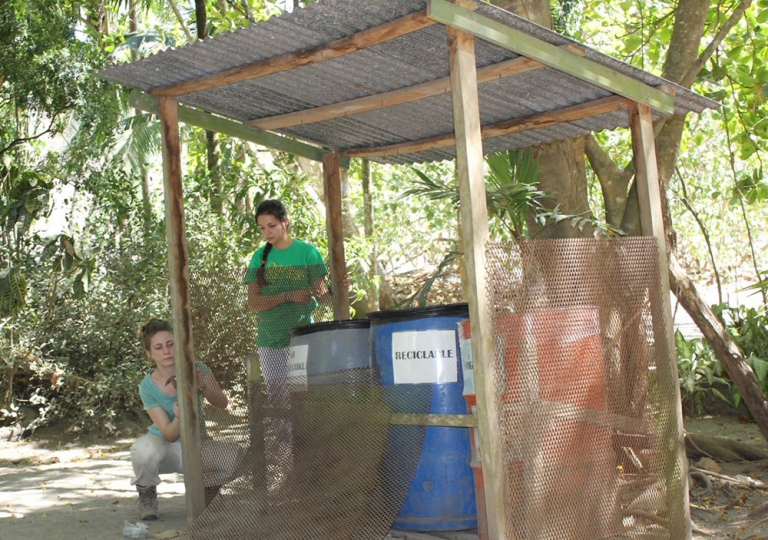Course Information
Here we provide information on course requirements, course descriptions and an Academic Rhode Map for each program, a semester-by-semester plan to help you toward graduation in four years.

Environmental studies focuses on how humans interact with their environment and the ways in which we can move toward a more sustainable future. Students engage in an interdisciplinary course of study, taking courses in the sciences, humanities, social sciences and art. This program also offers a minor in environmental studies.
Graduates of our program are able to work in a wide range of fields, including nonprofit work, natural resource management, environmental education/interpretation, environmental analysis/consulting, international environmental relations, environmental/social policy and associated research, parks and outdoor recreation, environmental journalism and urban agriculture.

Rhode Island College is an exclusive member of the Common Application.
Here we provide information on course requirements, course descriptions and an Academic Rhode Map for each program, a semester-by-semester plan to help you toward graduation in four years.
Upon completion of this program, students will be able to:
Environmental studies is an interdisciplinary program integrating the natural sciences, social sciences and humanities. This interdisciplinary approach means that there is no specific set of expectations or guidelines for writing because graduates of the program will go on to so many different kinds of careers in so many different professional fields. Clear writing, however, is essential for all environmental studies majors, who may use writing while taking notes in field settings, recording and reporting data, presenting technical reports and/or preparing content for both general and specialized audiences.
Exposure to and practice with different writing styles occurs in all environmental studies courses. Styles of writing for science occur in biology, physical sciences and chemistry courses; humanities writing styles occur in history and English courses; business writing styles occur in economics courses; and social and behavioral sciences writing styles occur in anthropology, communication, INGOs, geography, philosophy, political science and sociology courses. In short, students are exposed to a range of different styles of writing via their interdisciplinary coursework. Additionally, the Environmental Studies Program has specifically identified these courses as ones that satisfy our WID requirement:
ENST 200: Introduction to Environmental Studies
and
COMM 201 Writing for the News (Formerly COMM 302)
or
ENGL 231: Writing for Digital Media & Multimedia Settings
or
ENGL 232: Writing for the Public Sphere
Due to the interdisciplinary nature of this program, students will learn and practice many different genres of writing in the courses they take for the program, which may include some of the following: letters, editorials, rhetorical analyses, white papers, position papers, proposals, progress reports, blogs, media production projects and presentations, basic reporting, public relations formats and techniques for achieving high-quality news and public relations. The genres students learn about and practice will depend on their chosen areas of focus within the program.
In ENST 200, writing instruction occurs throughout the course in both formal and informal writing assignments. Instruction is given on how to appropriately format a scholarly paper and how to choose and use academic sources. Students may be asked to submit multiple drafts of some papers, responding to feedback from peers and/or the instructor.
In COMM 201, we cover the fundamentals of composition using the AP style guide. Topics include news values, basic reporting, public relations formats and techniques for achieving high-quality news and public relations writing. Students build on their news and media writing skills and become more proficient at public relations writing for digital and traditional outlets.
In ENGL 231 and 232, students experience a range of different teaching practices, including peer review, small group tutorial, individual conferences/consultations, low-stakes writing and instruction in the full range of composing activities (i.e. planning, drafting, revising, editing, etc.).
Students will be able to draw on content from a broad array of sources, integrate and synthesize the content and present it in a manner that is understandable to both general and specialized audiences. They may present content in both written and graphic form, they may use formal or informal styles and final content may be presented in paper or digital formats.
Declaring a minor allows you to explore other areas of interest and make interdisciplinary connections. Minor areas at RIC complement and reinforce all major areas of study. By declaring a minor, you can set yourself apart as a candidate for job, internship and volunteer opportunities.